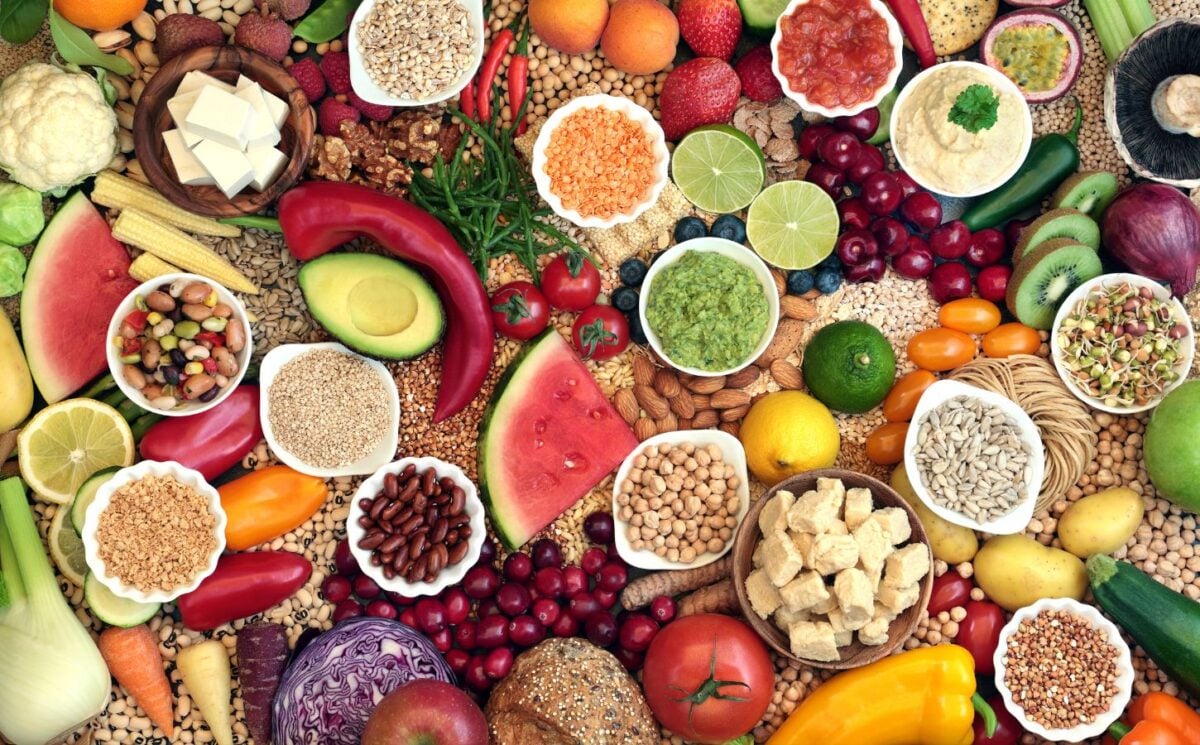A major new study has found that people who follow vegetarian diets may have a lower risk of developing several cancers – including some of the less common types.
Researchers looked at the diets of almost 80,000 members of the Seventh-day Adventist Church in the US and Canada, none of whom had cancer at the start of the study.
Read more: Hospitals In Portugal To Expand Plant-Based Menu Options
The study defined “vegetarian” diets as falling in three categories: vegans, who consumed no animal products at all; lacto-ovo-vegetarians, who did not eat meat or fish but consumed dairy and/or eggs; and pesco-vegetarians, who were similar to lacto-ovo-vegetarians but ate some fish.
When researchers compared these groups with participants who ate meat at least weekly, they found that vegetarians overall had about a 12 percent lower risk of developing any cancer, and an 18 percent lower risk for a group of so-called “medium-frequency” cancers – including melanoma, thyroid, ovarian, pancreatic, stomach and lymphomas. Significant reductions were seen for three specific cancers: colorectal cancer (21 percent lower), stomach cancer (45 percent lower), and lymphoproliferative cancers such as lymphoma (25 percent lower).
Out of all three vegetarian categories, vegans had the lowest chance of developing cancer overall, at 24 percent, and younger vegans had a particularly lower chance of developing prostate and breast cancer (43 percent reduction and 31 percent reduction respectively). Vegans also had a 23 percent decreased risk of medium-frequency cancers.
The study, published in The American Journal of Clinical Nutrition, was part of the Adventist Health Study-2. Study authors stressed that the observational design “cannot establish causality with certainty” but said the associations “were strong and persuasive.”
Read more: Even Low-Level Consumption Of Processed Meats ‘Not Safe,’ Says Study
Plant-based diets and cancer

Vegan diets, which tend to be rich in fruits, vegetables, and pulses, have long been associated with decreased cancer risk and increased longevity. The link between plant-based diets and reduced risk of common cancers like colorectal, breast, and prostate is more established, but this study is thought to be among the first to provide strong evidence of the link between vegetarian diets and other, less-studied cancers.
“This is all relatively unique information and possibly the most robust that’s out there concerning cancers such as stomach and lymphoma,” said lead study author Gary E. Fraser. “It may also be pointing the finger at several other cancers, such as lung, ovary, and pancreas, where the evidence from this study was suggestive of lower risk in vegetarians, but did not quite reach the necessary standard to say more.”
Despite a growing body of evidence that plant-based diets appear to significantly lower cancer risk, as well as risk of other chronic illnesses like heart disease and type 2 diabetes, health bodies across the world have historically been reluctant to promote animal-free eating to patients. In the UK, there are growing calls by health experts for the National Health Service (NHS) to go plant-based, and studies have suggested that it could save around £74 million in costs by doing so.
Dr Shireen Kassam, a consultant haematologist and founder of Plant Based Health Professionals UK, who was not involved in the study, told Plant Based News that “it’s time the profession supported implementation of plant-based diets within healthcare.”
“Not only would this reduce the burden of cancer but we also have evidence to support plant-based diets for improving outcomes for people who have a diagnosis of cancer,” she added. “When you add the additional benefits for cardiometabolic health it’s a no brainer to support a shift to a plant-based food environment.”
Read more: Vegans ‘More In Line’ With Nutritional Recommendations, Says Study






